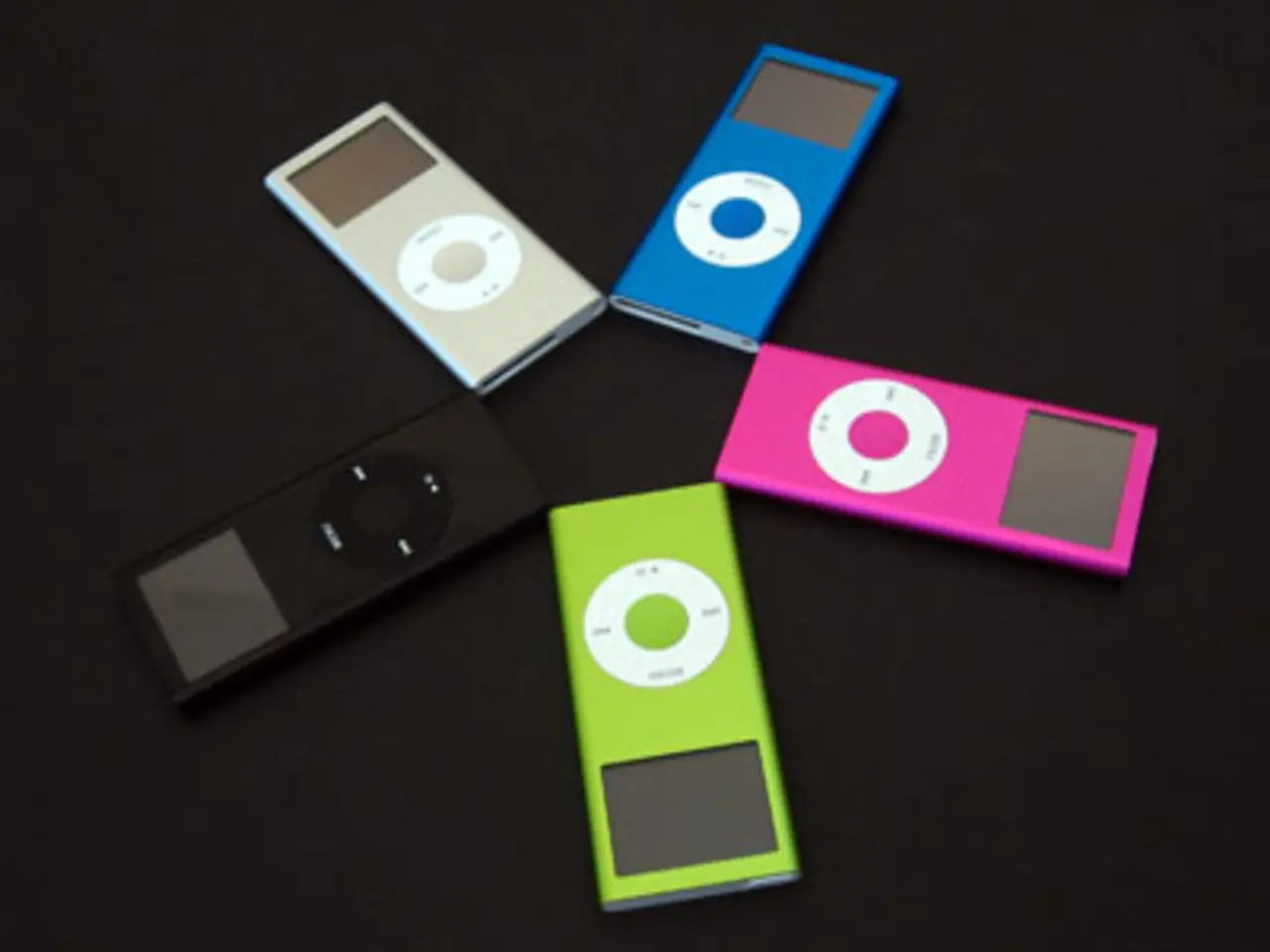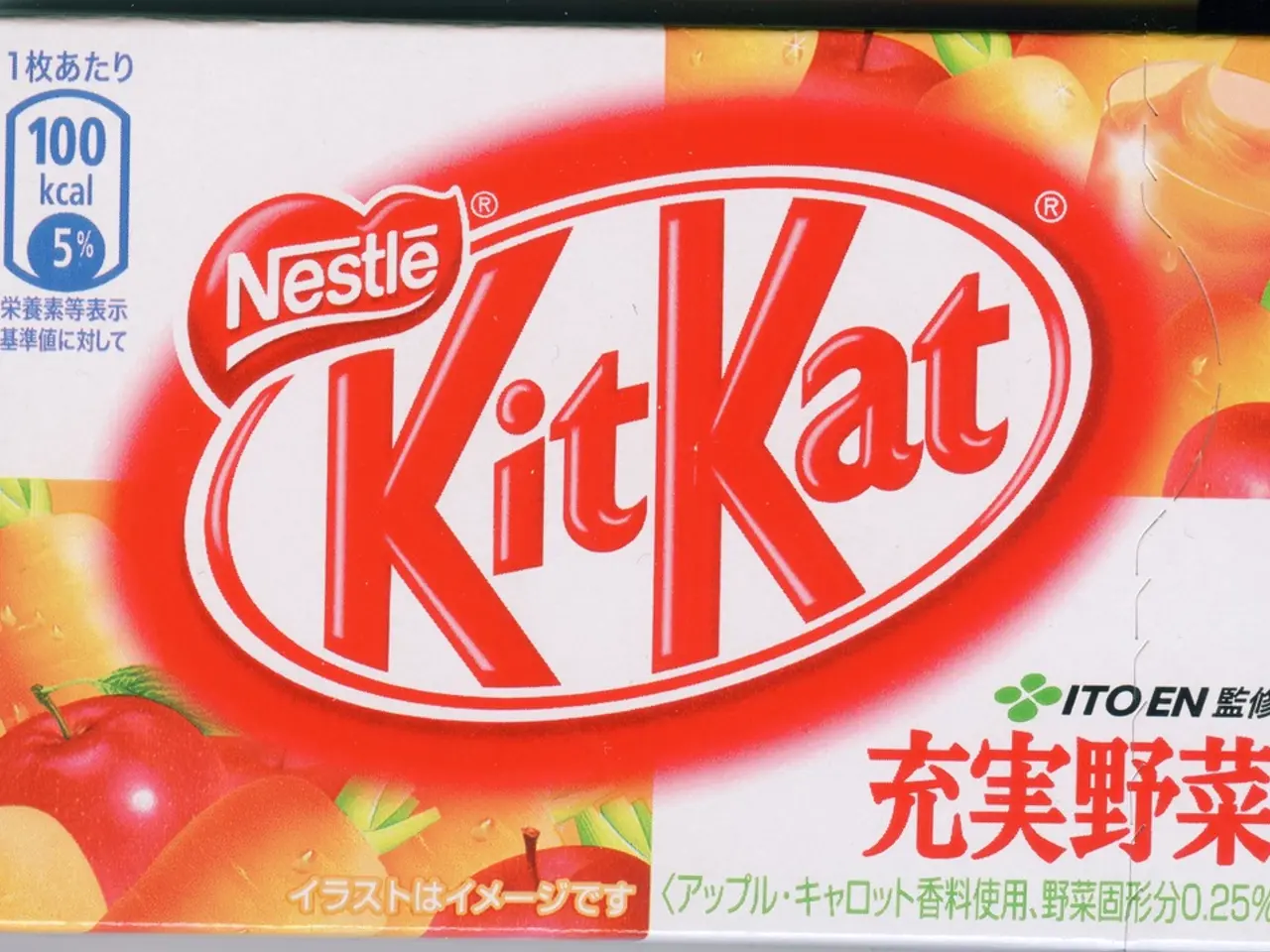FDA Grants Approval to Apple AirPods as Hearing Aids - Insights on the Implications
In a groundbreaking move, Apple has updated its popular AirPods Pro 2 to function as over-the-counter hearing aids for adults with mild to moderate hearing loss. This transformation, confirmed by Tim Cook on July 15, marks a significant step in making hearing assistance more accessible and affordable.
The hearing aid feature in the AirPods Pro 2 allows users to assess and manage their hearing through software alone, with a five-minute hearing test delivered via iPhone or iPad. This test, scientifically validated and evaluating hearing across four frequencies, mimics the experience of a doctor's office or audiologist visit. Based on the results, the AirPods Pro 2 can automatically adjust audio settings to function as a clinical-grade hearing aid, boosting frequencies where hearing is lacking.
The custom hearing profile generated from the test is stored in the iOS Health app and automatically adjusts audio playback across calls, music, and other media, providing support for environmental sounds, music, videos, and phone calls. Apple has also introduced a passive hearing protection mode that reduces exposure to loud environmental noise in real time.
This expansion of medical capabilities into Apple's consumer technology is not limited to hearing assistance. The Apple Watch has also been updated to include a sleep apnea detection tool, which uses a user's breathing patterns over time to determine whether they show signs of moderate or severe sleep apnea. The results of this tool can be viewed in the Health app and shared with physicians.
Apple has expanded these features to several new markets, including Argentina, Australia, Ecuador, Honduras, Indonesia, Israel, Kazakhstan, Moldova, Palestine, Serbia, Taiwan, Thailand, Ukraine, and Vietnam. The sleep apnea detection tool on the Apple Watch Series 9, Series 10, and Ultra 2 has received clearance from the U.S. Food and Drug Administration and is now rolling out in over 150 countries.
It is important to note that while the AirPods Pro 2 offer hearing aid-like functionality, they are not FDA-cleared as traditional hearing aids. Instead, they are positioned as a consumer technology solution for hearing assistance, with features designed to support users with mild to moderate hearing loss through software adjustments and a simple, at-home hearing test.
The regulatory, ethical, and consumer sentiment surrounding wearables taking on functions once reserved for medical devices may be significant factors to consider. However, the World Health Organization reports that 1.5 billion people globally live with some form of hearing loss, with the vast majority not using hearing aids. Apple's AirPods Pro 2, with its software-only hearing aid feature, could potentially bridge this gap, making hearing assistance more accessible and affordable for millions.
- The software-only hearing aid feature in the AirPods Pro 2, while not FDA-approved as traditional hearing aids, uses a short, at-home hearing test to analyze hearing across four frequencies, functioning much like a doctor's visit or audiologist appointment.
- Science and technology merge in the health and wellness realm as Apple's AirPods Pro 2 now offer features that can manage hearing issues, providing support for various audio settings in calls, music, and media.
- Beyond hearing assistance, the Apple Watch has been updated to detect sleep apnea by analyzing a user's breathing patterns over time, a testament to wearable health tech's potential in addressing medical-conditions.
- The regulatory and ethical implications of gadgets like the AirPods Pro 2 encroaching on medical-device territory, such as sleep apnea detection, are significant, especially considering the World Health Organization's report of 1.5 billion individuals globally suffering from hearing loss, the majority of whom do not use hearing aids. This highlights the potential of wearables, like the AirPods Pro 2, to bridge this gap by offering accessible and affordable hearing solutions.




